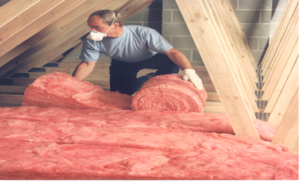The Inside Scoop On Insulation
Everyone knows the importance of purchasing efficient quality heating and cooling equipment, and spends a lot of time and effort making sure they have the top of line equipment that is regularly maintained. Some people tend to overlook however the importance of a little talked about HVAC tool in the industry’s toolbox and that handy piece of equipment is insulation.
There are many different types and varieties of insulation, but all share ultimately the same purpose which is to protect and keep air temperatures consistent. Some types of insulation are better suited to trapping heated air, and keeping cold air out in parts of the country where winter and outdoor temperatures require it, as well keeping heating costs down by allowing heating systems to work more efficiently. Similarly insulation used with air conditioning systems, keeps hot outside air from seeping into a cooled air system, and allows cooling costs to be manageable.
Insulating your ceilings, walls, and floors will help to significantly lower the cost to keep your home heated or cooled, depending on the season and temperature. There are several different classes of insulations and types used to maintain comfortable homes.
Some types used most commonly are fiberglass, cellulose, and low density foams. Almost all of these insulating materials are relatively inexpensive and the savings they offer when properly installed by well train HVAC technicians are incredible. Within a few hours a heating and cooling professional should be able to properly insulate your home depending on size of your property and what exactly is required to ensure you are saving money on energy bills. It is estimated by the United States Department of energy that a massive portion of energy used is by homeowners to either heat or cool their homes. Insulation can and does make a rather large difference in cutting down your energy needs, and ultimately makes it far cheaper to heat or cool your home. If you believe your energy bills are much too high, and think you may wish to cut those costs, be sure to contact your local HVAC professional to get an estimate on energy saving insulation.

 Coupons
Coupons Book online
Book online Pay now
Pay now




